Top Class Actions’s website and social media posts use affiliate links. If you make a purchase using such links, we may receive a commission, but it will not result in any additional charges to you. Please review our Affiliate Link Disclosure for more information.
Following U.S. protests over the death of George Floyd, Canadians came out by the thousands to protest and hold vigils for the lives lost due to police brutality.
Amid the protests, many are calling upon the government to defund the police in the U.S. and Canada. Black Lives Matter Canada founder, Sandy Hudson, suggested policing alternatives, including seeking social workers in instances of mental health emergencies, rather than involving the police. “If the police aren’t well-equipped to provide safety services in the event of a mental health crisis, why don’t we create a new service that people could call?”
In Canada, defunding the police and other policing decisions, such as implementing body cameras, will ultimately involve various levels of government, including federal, provincial, and municipal governments, as well as First Nations communities.
Police Body Cameras
Prime Minister Trudeau announced he will push provincial premiers to equip police with body cameras. This measure is a rapid, substantive solution to allegations of racism and police brutality, according to Trudeau, because cameras document police officers’ interactions with the public.
The prime minister’s response to Canadian protests sought to address several incidents across the country, including allegations of police brutality in First Nations communities. One of the instances reported concerns a fatal police shooting of a 26-year-old Indigenous woman in Edmundston, N.B.
RCMP Commissioner Brenda Lucki has reportedly agreed to outfit some officers with body cameras, although the RCMP rejected body cameras in 2016 due to technical problems.
Trudeau said he raised the body camera idea with Lucki, and promised to pursue the issue with the provincial premiers later in the week.
Defunding and Police Brutality
In 2019, Montreal’s police force had an operating budget of over $662 million. This number is in stark contrast to $115 million allotted to social housing and is virtually double the amount of the fire department’s budget.
In Toronto, city councillors voiced their support to defund the city’s municipal police force by 10 per cent to use the money for community resources.
The 10 per cent cut in funding will allegedly free up some $122 million to be allocated to community programs.
When asked if he would consider defunding the RCMP, which receives a significant amount of the national policing budget, the prime minister did not discount the idea. “I think there are many different paths toward making a better country. We need to explore the range of them,” he responded.
Mental health has been considered an essential piece of the call for defunding police, as many incidents of police brutality in Canada involved mental health and substance abuse issues, including Korchinski-Paquet’s recent death, which occurred during a police response to a mental health check on May 27.
Korchinski-Paquet, fell from a 24th-floor Toronto balcony while police were in her home. The deceased’s mother allegedly called police into the apartment to take her daughter to the Centre for Addiction and Mental Health.
Countless such stories underscore activists’ belief that the millions in police funding could go to boosting community support for mental health and creating a new emergency service, allowing for less police involvement in areas outside of their competencies that can lead to brutality.
Police Obligations
In light of police brutality claims, it is important to note that police are accountable to the public, and are responsible for keeping Canadians safe and enforcing the law. However, when referring to “police” in Canada, the general term does not refer to a unitary, country-wide police force. Rather, there are several different levels of law enforcement in Canada.
The RCMP enforces federal laws and provides policing in all territories and most provinces. Some provinces, like Ontario, Quebec, Newfoundland and Labrador have their own provincial police forces. Additionally, most cities have municipal police forces, such as Montreal’s SPVM. Finally, many First Nations communities also have their 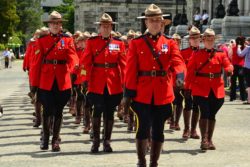
Federal police are regulated via federal law. Likewise, provincial legislation outlines the obligations of provincial police. Article 18 of the Royal Canadian Mounted Police Act defines the duties of RCMP officers. According to the Act, RCMP officers must:
- Perform all duties that are assigned in relation to the preservation of the peace, the prevention of crime and offences against federal and provincial laws, and the apprehension of criminals and offenders and others who may be lawfully taken into custody;
- Execute warrants;
- Escort and convey convicts and other persons in custody to or from courts, prisons, asylums or other places; and
- Perform other duties and functions as are prescribed by the Governor in Council or the Commissioner.
Police Jurisdiction
In Canada, police are governed by municipal, provincial and federal government agencies. Making changes in terms of funding or policing practices to prevent police brutality and racism involves an intricate dance of all three levels of government.
Canada’s federal police force, the RCMP, is the largest single force in the country. Its roles vary, from enforcing federal laws, to investigating financial and organized crime, to protecting national security, etc. The RCMP also provides policing services under contract to Canada’s territories and provinces, except Ontario and Quebec, both of which have a provincial police force. Additionally, the RCMP provides policing services to over 150 municipalities.
Section 92 of the Constitution Act, 1867 provides that provinces are responsible for public policing. Although all provinces have the jurisdiction to create provincial police forces, Ontario, Quebec, Newfoundland and Labrador are the only provinces to have their own provincial police force. The rest of Canada relies on the RCMP for policing services in areas that don’t have municipal police forces.
In Ontario, the Ontario Provincial Police has jurisdiction over the entire province, except in municipalities that have their own police force. Quebec’s provincial police force, the Sûreté du Québec is Canada’s oldest operating provincial police force, founded in 1870, and operates in a similar way to Ontario’s provincial police. In Newfoundland and Labrador, the Royal Newfoundland Constabulary, founded just one year after the Sûreté du Québec, provides policing services in communities across the province, including the major metropolitan areas. Nevertheless, the province also contracts the services of the RCMP in certain areas.
Ontario’s Police Services Act and related regulations provide a good look into the workings of police jurisdiction in provinces. Notably, the legislation:
- Gives municipalities the responsibility for providing police services;
- Gives the Ministry of the Solicitor General the responsibility for interpreting legislation and regulations, and inspecting the activities of Ontario’s police services;
- Identifies core activities for policing in the province; and
- Describes six principles for police services to follow in carrying out those activities.
Municipalities, such as the city of Montreal or Toronto, can provide police services for their residents in several ways, namely:
- They can set up their own police service;
- The can arrange with one or more municipalities to have a joint police service for the area;
- They can hire police services from another municipality; and
- They can hire provincial police.
Most cities and many large towns have their own police force. Provinces often delegate policing responsibilities to large municipalities through provincial Police Acts. Municipal police forces will typically be governed by municipal councils or their communities. Many towns and cities also have police boards that oversee the operation of the municipal police force. Furthermore, most provinces directly supervise municipal forces through police commissions. Provinces usually finance part of the cost of municipal policing and will penalize municipalities via funding cutbacks if they don’t meet provincial standards, such as police brutality.
First Nations police are governed by the First Nations Policing Program. Under this federal policy, First Nations negotiate with the federal government as well as provincial or territorial governments to establish policing agreements. These agreements may include self-administered police services or policing by provincial or federal services. For example, the RCMP provides policing services to over 600 Indigenous communities.
In 2018, there were 36 First Nations self-administered police services. For example, in Western Canada, such police forces include the Manitoba First Nations Police, Stl’atl’imx Tribal Police Service, File Hills First Nations Police Service, Blood Tribe Police Service, Lakeshore Regional Police Service and Tsuut’ina Nation Police Service.
Canada’s Police Mosaic
The above outline of police jurisdiction and responsibilities highlight that decisions concerning police, such as implementing body cameras to prevent brutality or defunding, will need to pass through, and ultimately be made by different levels of government. For example, the federal government can decide to defund the RCMP, but this decision will generally not affect provincial or municipal police. Likewise, a province can decide to implement body cameras for provincial police, but this does not mean that every police officer in the province will be equipped with a body camera. This is because most provinces will also have federal police and municipal police forces serving the province.
Although the complexity of police jurisdiction may appear to render anti-brutality progress more challenging, it also provides for some hope: all the decisions are not made by the same governmental body. Whereas certain provinces or municipalities may reject calls for defunding, for example, others can implement such measures without requiring approval from dissenting government authorities.
What do you think about defunding the police in Canada? Should federal, provincial and municipal police forces be treated the same? Tell us your thoughts in the comment section below!
ATTORNEY ADVERTISING
Top Class Actions is a Proud Member of the American Bar Association
LEGAL INFORMATION IS NOT LEGAL ADVICE
Top Class Actions Legal Statement
©2008 – 2024 Top Class Actions® LLC
Various Trademarks held by their respective owners
This website is not intended for viewing or usage by European Union citizens.

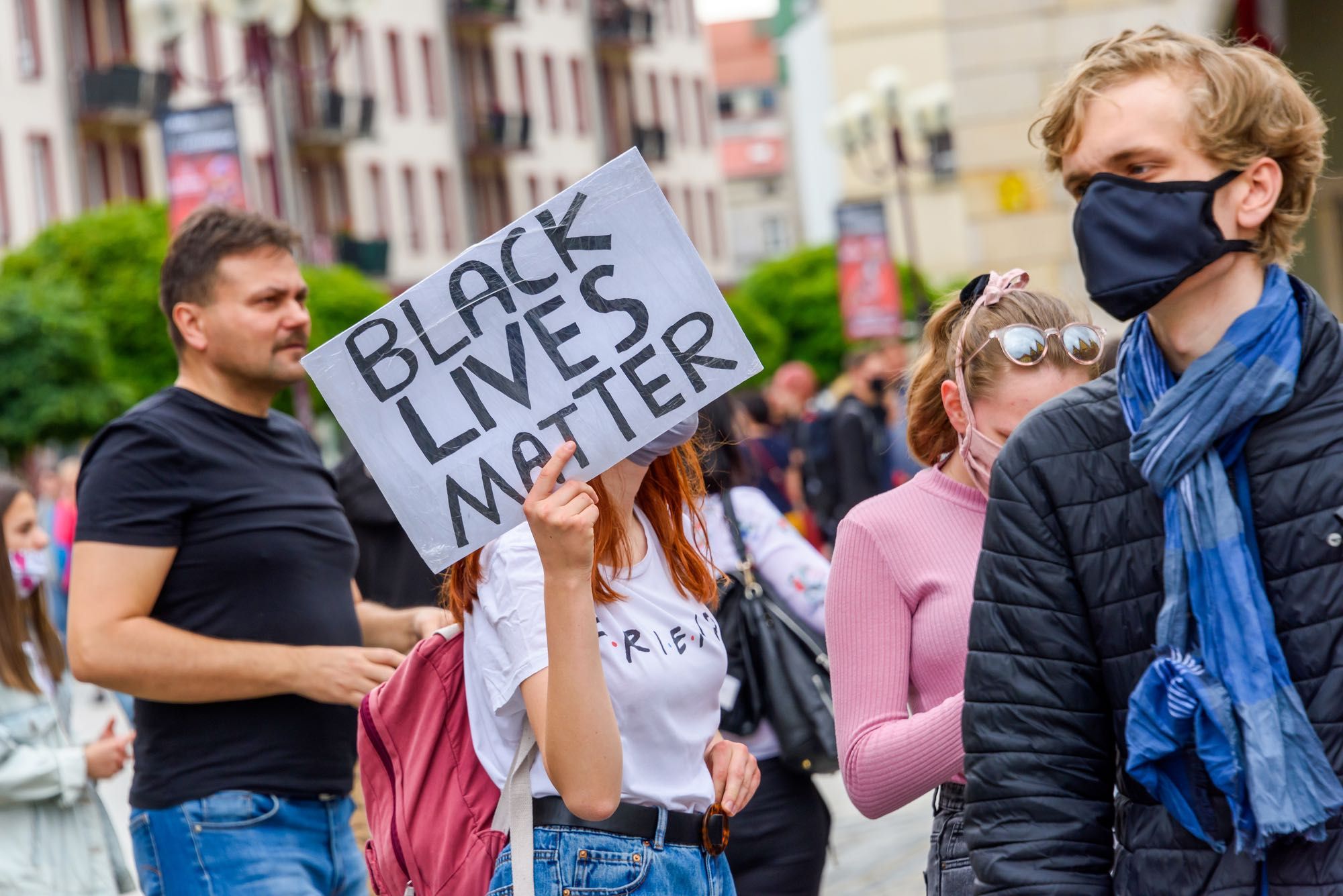




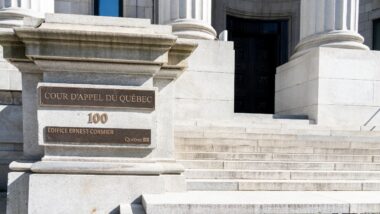
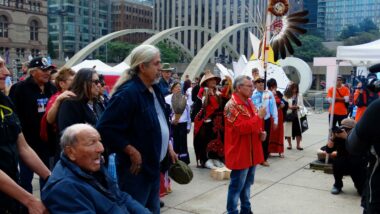


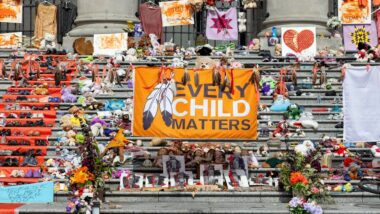

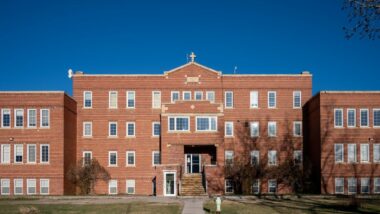

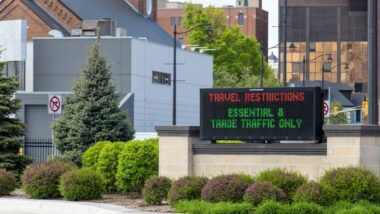
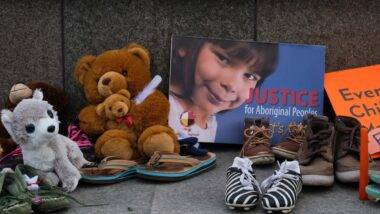


One thought on Thousands Protest Police Brutality in Canada and Call for Defunding
I was beaten server times by police RCMP eps vpd corrections all across the prairies I am a aboriginal I was tortured in grand cashe correction by several guards tied up helmet on on a board drop several feet on my face ect through out the eighties and nineties to much to list.